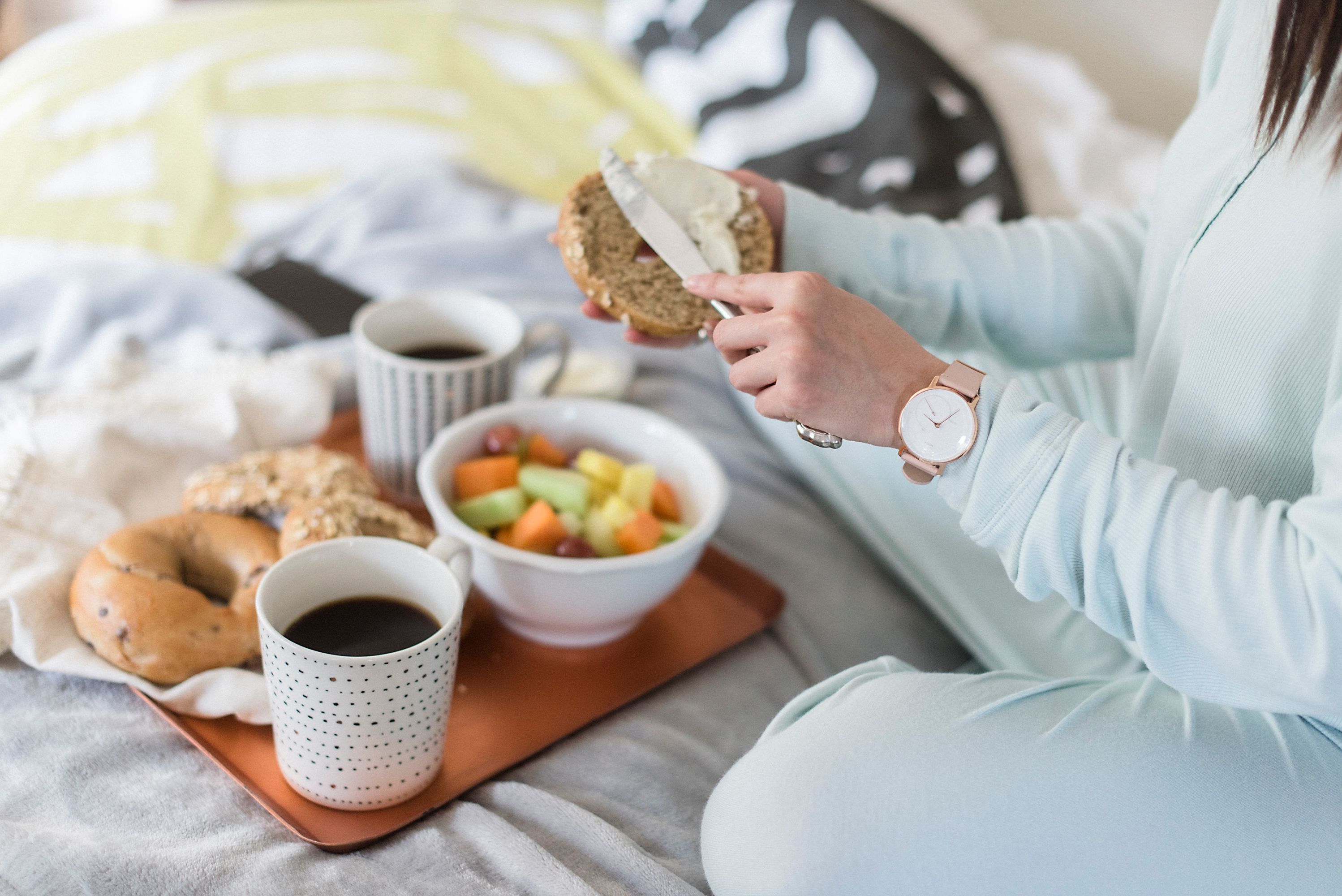
Discover some of the yummiest natural sleep aids with our list of the best foods for sleep.
By now, everyone ought to know how important it is to get a good night’s sleep. If you’re one of the few people this side of the 21st century who aren’t up to speed, just know that sleep deficiency can lead to a wide range of health problems, including obesity, heart disease, depression, and diabetes.
Luckily, there are loads of little ways you can enhance the quality of your forty winks, some of which have to do with the types of food you’re eating before bedtime. We’ve taken the liberty of creating a list of our favorite foods for sleep quality, so you can get the sort of shut-eye that’ll make you shine for the day ahead.
1. A serving of fish
Fish, particularly the omega-3 fatty acids that are found within them, may be one of the best natural sleep aids. According to a study published in Scientific Reports, there’s a relationship between fish consumption and improved cognition. Okay, but where does sleep come into that? Well, the authors of the study argue that this fish-cognition relationship is most likely explained by the fact that fish helps to improve sleep quality.
So really, that’s two health boons for the price of one: improved sleep and upgraded cognitive functioning. Although the study was focused on kids, it’s possible that its findings could also apply to adults. Why not start eating fish at least once a week, and see if you can catch a good night’s sleep—hook, line, and sinker!
2. A handful of almonds
The humble almond, beloved by low-carb enthusiasts everywhere, may have a surprising effect on the quality of your sleep. How come? Basically, it’s because almonds are a good source of melatonin, a sleep-regulating hormone, as well as magnesium, which has been shown to help improve sleep, particularly amongst people who suffer from insomnia.
However, it’s important to note that there’s not very much actual research around the sleep-boosting effects of almonds. One study on rats found that consuming almonds helped them to sleep longer than they would otherwise, but obviously there’s still a need for human trials.
3. Cherries and cherry juice
Another great source of melatonin, research has shown than cherries—tart cherry juice in particular—may have a great impact on the duration and quality of your sleep. One study showed that adults who drank Montmorency tart cherry juice twice a day over the course of the week ended up sleeping about 40 minutes longer than those who drank a different beverage, while another report indicated that cherry juice may help adults suffering from insomnia sleep for longer.
4. A glass of warm milk
Sometimes, the best remedies are the ones we’re all familiar with. As almost everybody’s grandma will have told them once upon a time, warm milk is one of the best ways to kick off a good night’s sleep. But is it just an old wives’ tale, or is there real science behind the idea? Well, although milk does contain melatonin and tryptophan—two substances which are recognized sleep-inducers—the main benefit of milk is psychological.
Put simply, if you grew up drinking warm milk before bed, the routine may help you relax, making it easier for you to get to sleep. If your brain recognizes milk as part of your pre-sleep routine, it may respond accordingly, sending you off to the land of nod a little bit easier.
5. A bowl of kiwi fruit
Packing a serious nutritional punch, kiwi may also influence your sleep quality. According to a study from researchers at Taipei Medical University, people who eat kiwi on a daily basis saw dramatic improvements in the quality of their sleep, increasing the total time that they slept every night by 13.4%. This natural sleep aid has a whole lot of antioxidants and serotonin, both of which are linked to good sleep, so next time you’re feeling a little heavy-eyed, try throwing a fruit salad together before you head off to bed.
So, there you have it: five of the best foods for sleep. Just remember that while some foods may help you get to sleep, it’s just as likely that the food you’re eating is stopping you from nodding off. Avoiding sugary snacks, caffeine, and alcohol can help you get a better night’s sleep, and get healthy in the process.


